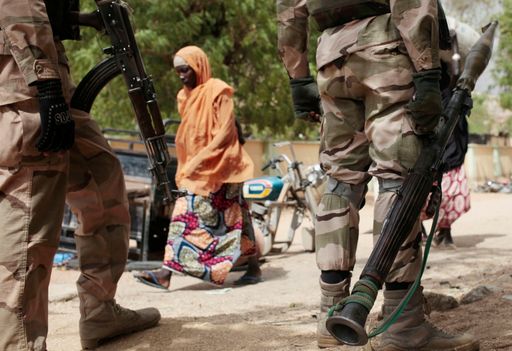On June 12, 2025 Nigeria marked 26 years of uninterrupted democratic governance—a milestone that stands out on a continent where many nations still wrestle with recurring military coups or fragile transitions.
As Africa’s largest democracy, Nigeria’s political trajectory matters—not just for its own more than 230 million citizens, but for the continent and the international community.
Yet, behind the symbolism of Democracy Day lies a hard truth: Nigeria’s democratic project is increasingly imperiled by an enduring crisis of insecurity.
For over a decade, armed violence has not only eroded public trust in the state but has also stunted democratic consolidation and complicated international efforts to support governance, development, and stability in the region.
The situation demands renewed attention and strategic engagement from global partners. Nigeria’s experience offers a compelling case study on the interplay between security governance and democratic resilience—and a cautionary tale about the cost of delay in reform.
When Nigeria returned to civilian rule in 1999, the world welcomed what appeared to be a decisive break from three decades of intermittent military rule.
Since then, it has completed six electoral cycles and witnessed multiple peaceful transfers of power—no small feat in a country as diverse and politically complex as Nigeria.
The 2018 decision to move Democracy Day from May 29 to June 12—commemorating the country’s annulled 1993 elections, widely seen as the freest in Nigeria’s history—was a meaningful gesture.
It honoured the democratic aspirations of millions who resisted autocracy and demanded civilian governance. But aspiration has not yet translated into transformation.
For many Nigerians, democracy has failed to deliver on its most basic promise: security.
The scale and scope of Nigeria’s security challenges are staggering.
A web of interlinked challenges have exposed a deeper problem: Nigeria’s security institutions are not only overstretched—they are structurally ill-equipped to manage a modern, democratic security agenda.
Security is the bedrock of democracy. It guarantees the rights and freedoms that define open societies and enables political participation and economic inclusion.
In Nigeria, insecurity has become a major barrier to electoral integrity, civic engagement, and access to justice. This has produced a worrying legitimacy gap.
Voter apathy is rising. Confidence in state institutions, particularly the police and judiciary, is eroding. The social contract—already frayed by decades of elite misgovernance—is under immense strain.
Successive administrations have recognised these problems and responded with a variety of security strategies, including military operations.
But the dominant approach remains reactive and overly centralised. Nigeria’s state-centric security model—shaped by its military past and a federal structure that concentrates security authority in Abuja—is no longer viable in a society as decentralised and diverse as Nigeria’s.
Nigeria’s internal security challenges have global consequences. As a strategic actor in West Africa and a linchpin of continental stability, Nigeria’s capacity—or failure—to manage its insecurity has implications for regional displacement, trafficking networks, transnational terrorism, and peacekeeping effectiveness. International partners have a stake in Nigeria’s stability, not just for normative reasons, but for pragmatic ones.

This is why security sector reform (SSR) must move from the margins of donor policy to the centre of international engagement with Nigeria. The case for reform is clear:
● Enhanced legislation: This must support the democratisation of the security sector and that enables effective security sector governance and a security sector reform that benefits Nigeria’s democratic aspirations and its security imperative.
● Decentralisation of policing: Nigeria must develop effective sub-national policing systems that are locally accountable, community-rooted, and equipped to address context-specific threats.
● Rule of law and accountability: Security forces must operate under strict civilian oversight, with real consequences for abuses. A democratic security force cannot act with impunity.
● Justice sector reform: A functioning democracy requires more than boots on the ground; it requires credible courts, timely prosecution, and accessible legal redress for citizens.
● Civic space protection: A secure state must also be a free state. Civic actors, journalists, and human rights defenders should be protected, not harassed, as partners in building safer communities.
● Climate-security integration: The links between environmental degradation and conflict must be acknowledged and addressed through adaptive policies and resilience investments.
● Regional coordination: Nigeria must work with ECOWAS, the AES, the African Union, and Lake Chad Basin countries to address transboundary threats in a collaborative and intelligence-led manner.
The international community—particularly bilateral partners, multilateral agencies, and international financial institutions—has an opportunity to play a more transformative role. This means moving beyond short-term military assistance to long-term institutional support. It means tying aid to measurable governance outcomes.
And it means prioritising human security—the safety and dignity of people—as the core metric of progress.
Nigeria has the scale, population, and cultural influence to lead a new democratic consensus in Africa—one that champions both sovereignty and service to the people.
But to fulfil that role, it must address the crisis at its heart: the inability of the democratic state to guarantee safety, justice, and opportunity for all.
As Nigeria enters its 27th year of democratic governance, the time for symbolic reforms has passed. What is needed now is a bold reimagining of security governance—one that treats citizens not as threats to be controlled but as rights-holders to be protected.
For Nigeria, the cost of inaction is growing instability, democratic erosion, and diminished global standing.
For the international community, the lesson is clear: supporting Nigeria’s democracy means supporting its people’s right to live free from fear.
Security is not the end of democracy. It is its foundation. And that foundation must be rebuilt—urgently and collaboratively—if Nigeria’s democratic experiment is to endure.
The author, Dr. Kabiru Adamu, is the Managing Director of Beacon Security and Intelligence Limited, a security research and consultancy services’ firm specialising in the Sahel.
Disclaimer: The views expressed by the authors do not necessarily reflect the opinions, viewpoints and editorial policies of TRT Afrika.















